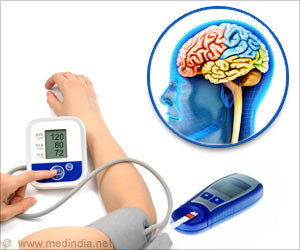
"Our findings do not support the widely held assumptions that systolic and diastolic pressure have similar strong associations with the occurrence of all cardiovascular diseases across a wide age range", explains lead investigator Dr Eleni Rapsomaniki from The Farr Institute for Health Informatics Research, London, UK.*
The study is the first to explore the effects of blood pressure on the risk of 12 different cardiovascular conditions in various age groups as a first presentation of cardiovascular disease.
Researchers examined blood pressure data using the electronic health records of 1.25 million patients without cardiovascular disease, aged 30 years and older, who were followed for a median 5.2 years to record the first cardiovascular event. They also calculated the lifetime risks of developing specific cardiovascular diseases linked with high blood pressure at age 30 through to 80 years of age.
The findings show that despite modern therapy, the lifetime burden of hypertension remains substantial. For example, in a 30 year old with hypertension (blood pressure ≥140/90 mm Hg), the lifetime risk of developing cardiovascular disease was 63% compared with 46% in an individual with healthy blood pressure, and they developed cardiovascular disease 5 years earlier. Stable and unstable angina accounted for almost half of the loss of time free from cardiovascular disease at this age, whereas heart failure contributed to nearly a fifth of the years lost in individuals 80 years and older.
According to Dr Rapsomaniki, "With lifetime risks this high, the need for new blood pressure lowering strategies is paramount. Our estimates provide vital new information that can be used to improve patient counselling and decision making for people with hypertension, which are currently based mainly on the risks of heart attack and stroke, and will help to focus guidelines and doctors to the cardiovascular conditions that might be more common and in which screening and treatments are more likely to have an effect."*
Advertisement
Source-Eurekalert















